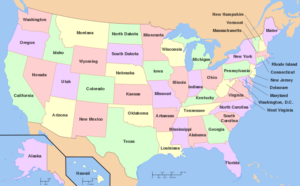State Protections for Tenants Seeking Police or Emergency Assistance
Survivors of domestic and sexual violence encounter a number of barriers to ensuring their safety. In many jurisdictions, due to local laws such as nuisance ordinances or crime-free housing policies, survivors often face the choice of seeking police or emergency assistance, or facing penalties such as eviction.
This webpage compiles state laws that provide protections for individuals (including, but not limited to, survivors of domestic and sexual violence) who seek police or emergency assistance. For more information, click on the map below or review the documents included under the “Resources” tab.

For information about other state and local laws that protect survivors, please refer to NHLP’s publication Housing Rights of Domestic Violence Survivors: A State and Local Law Compendium.
Please note that the information included on this webpage is provided for informational purposes only, and should not be considered legal advice. If you have questions about whether a particular state law applies to certain situation, please consult with an attorney in your state.
This project was supported by Grant No. 2017-TA-AX-K052, awarded by the Office on Violence Against Women, U.S. Department of Justice. The opinions, findings, conclusions, and recommendations expressed in this publication/program/exhibition are those of the author(s) and do not necessarily reflect the views of the Department of Justice, Office on Violence Against Women.
